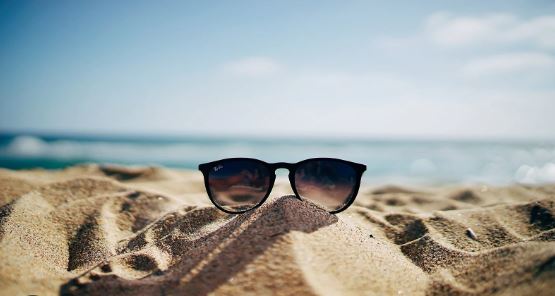
Sun, sea and surf, that’s what the summer holidays are all about.
Any beach can become dangerous, so extra precautions should be taken when at the beach, especially when travelling with little ones.
South Africa has a beautiful coastline with pristine beaches all the way from the white sandy beaches of the Western Cape to the golden coast of KwaZulu-Natal.
Wherever you choose to go, Clifton, Mossel Bay, Umzumbe, Gqeberha or Sodwana Bay, make sure that you follow the rules and swim in designated areas.
Here are 10 tips on beach safety from Rocky Bay Resorts’ manager Annien Koulountis.
1. Blue flag
According to Koulountis, Blue Flag Beaches are best because they meet international standards for accessibility, facilities and amenities, safety, cleanliness and responsibility towards the environment, so they are a great option if you can.
2. Lifeguards
“Only ever swim at beaches where and when lifeguards are on duty to keep safe, and always listen to their advice and follow their guidance on where and when to swim. They are the experts,” said the resort manager.
3. Avoid inflatables
When it comes to tubes and inflatables, Koulountis said that they shouldn’t be used at the beach as they can be blown away from shore very easily and do not act as a swimming safety device.
4. Supervise children
Koulountis also reiterated that children must always be supervised at the beach, even if they’re just in the shallows or rock pools, and parents must be cautious not to get distracted by a book or cellphone, as accidents can happen very quickly.
5. Rip currents
When caught in a rip current, she said that it’s important to stay calm as it will not pull you underwater but rather away from shore. “Swim out of the rip current, parallel to the shore, and follow the breaking waves back to the shore at an angle. If in trouble, wave a hand so the lifeguards are aware,” said Koulountis.
6. Face the ocean
The resorts manager also advised that you never turn your back on the ocean, particularly when climbing on or fishing from rocks, and it’s best to wear a life jacket in these instances, particularly in spring high tide.
7. Check the tides
She also advised that you plan your beach day around the tides, with low tide the best time to go for younger ones and keep an eye on the tide and monitor as it’s coming in.
8. Take a buddy
Koulountis also recommended that you never swim alone or take a friend with you so that there is someone to call for help if needed.
9. Go prepared
Also, when heading out for a day at the beach, remember to take everything you’re going to need, including lots of water for rehydration, sunscreen, snacks and some form of shade such as an umbrella and keep valuables hidden away from sight.
10. Choose your accommodation
Finally, for the ultimate seaside holiday, try to find accommodation that is close to the beach. “Whether you’re camping or in a holiday cabin, being close to the beach means you will really be getting the most out of your summer holiday fun,” said Koulountis.

